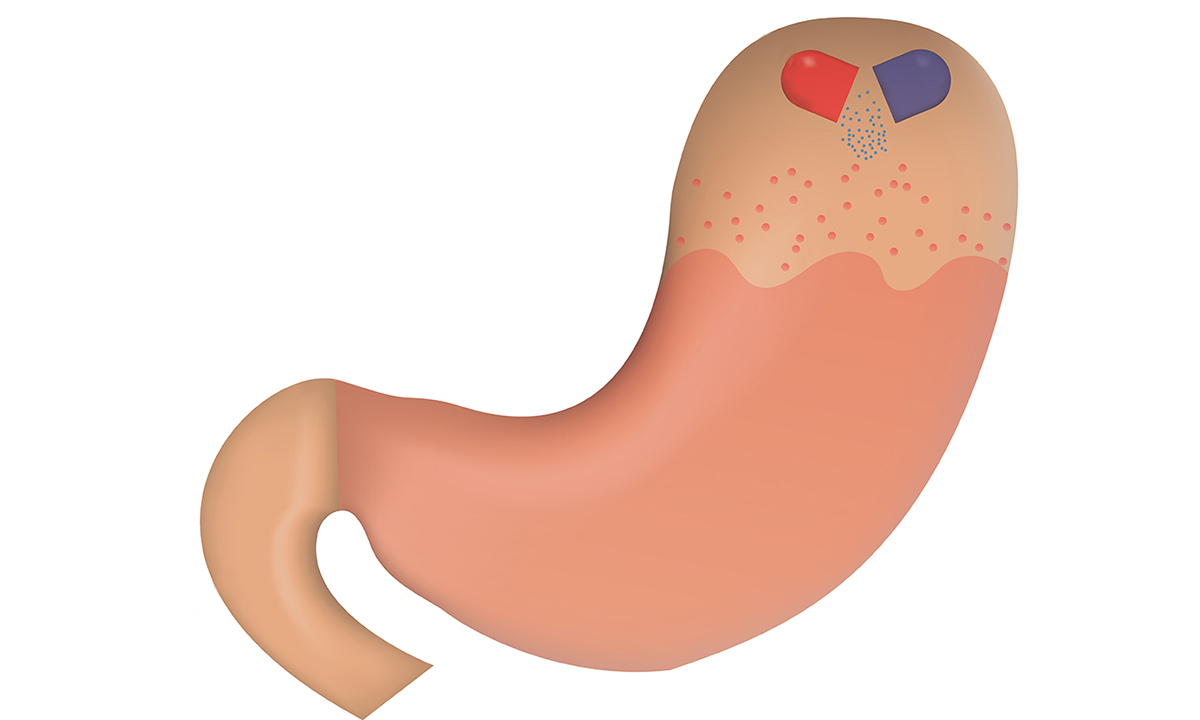CLINICIANS have allayed fears that proton pump inhibitors (PPIs) may cause rare but serious illnesses, such as pneumonia and bone fractures, despite warnings from medicines advisory groups.
The overuse of PPIs is an issue of growing concern worldwide, with studies suggesting that the drugs are often prescribed without obvious indication and without attempts to reduce patients’ doses over time.
In Australia, where at least two PPIs have featured annually in the top 10 most prescribed PBS-subsidised medicines, NPS MedicineWise launched a program in 2015 to help doctors step down PPI therapy.
As part of the campaign, NPS highlighted growing international concern about PPIs’ association with fractures, enteric infection and pneumonia, and also with vitamin B12, iron and magnesium deficiencies.
However, the strength of these associations was challenged in this week’s MJA by gastroenterology experts from the United Kingdom, Dr David Gracie and Professor Alexander Ford, who wrote that patients should be told “the benefits of PPIs outweigh any potential deleterious effects”.
The pair noted that most of the studies that have linked serious adverse events with PPIs were observational and retrospective.
“In the only randomised controlled trial that has examined the impact of one of these associations on patients, no increase in the risk of cardiac events was observed with PPIs,” they wrote. “Moreover, the magnitude of the increased associations observed in many of these studies, although statistically significant, is unlikely to be large enough to be clinically relevant.”
They concluded that PPIs, like any medicine, should be prescribed judiciously, with clear indication and regular review of the appropriateness of continued long term use to “minimise these theoretical risks”.
Associate Professor Peter Katelaris, a gastroenterologist and clinical academic at the University of Sydney, strongly agreed with their assessment.
“We know that there is a rare and serious side effect with PPIs of interstitial nephritis, which occurs in about 1 in 10 000 patients, and there may also be a very small increased risk of some gut infections and of microscopic colitis,” Associate Professor Katelaris told MJA InSight.
“The data really doesn’t stack up for the other putative effects attributed to PPI use, such as increased risk of respiratory infection, cardiovascular disease, osteoporosis and dementia. An association does not establish causation.”
However, Dr Gillian Caughey, senior research fellow of the Quality Use of Medicines and Pharmacy Research Centre at the University of South Australia’s Sansom Institute said there remained reasons for concern.
“The main point is that there are more studies showing increased risks of harms of a range of adverse events observed with PPI use, although the absolute risk may be very low,” she told MJA InSight.
“In the older population, who are the biggest users of these medicines, who also are at greatest risk of an adverse medicine event, there needs to be more judicious prescribing of PPIs.”
Dr Caughey said that once patients had completed their initial course of PPI therapy for 4–8 weeks, treatment should be reviewed. If an adequate response had been achieved, stepping down therapy options included reducing to a maintenance dose of PPI, intermittent dosing on alternative days, or using PPIs at maintenance dose on days when symptoms occurred. Cessation of treatment could also be considered, she added.
Associate Professor Vasi Naganathan, a geriatrician and academic at the University of Sydney, said that reducing PPI overuse was “a worthy aim, in the context of deprescribing medications in older people”.
However, he added, “the evidence for harm from PPIs is unclear, and PPIs have fewer side effects than many of the other drugs prescribed to older people”.
Latest news from doctorportal:
- Quitting alcohol a social challenge: study
- Dementia deaths on the rise in Australia
- Bowel cancer patients miss symptoms
- Baby with DNA from three people ‘exciting’

 more_vert
more_vert